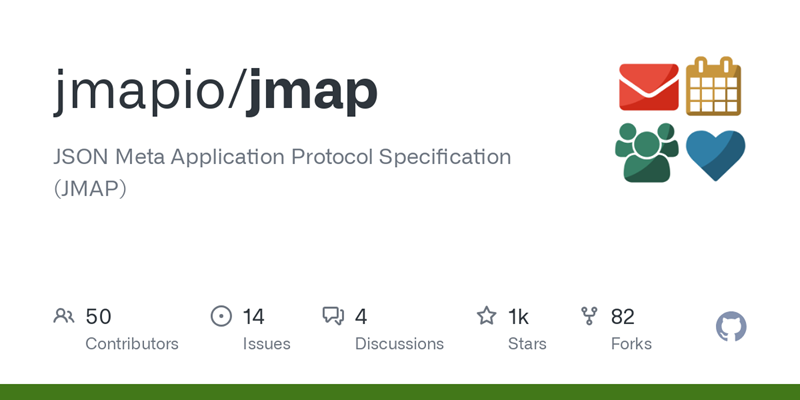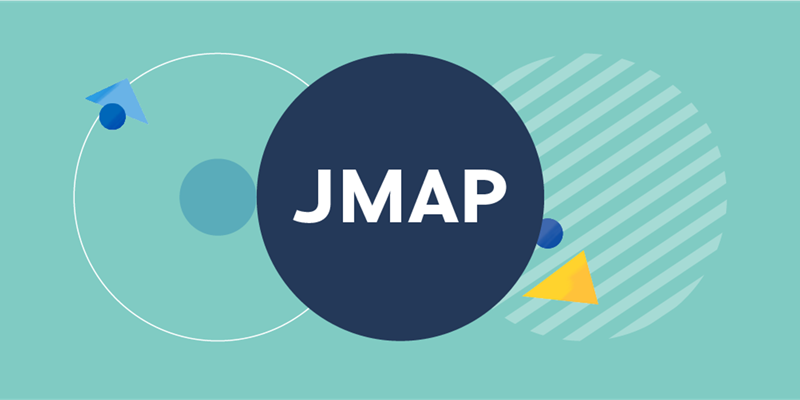The Joint Messaging API (JMAP) is a revolutionary new open email standard, designed to significantly enhance the efficiency and speed of email communication. Unlike the traditional email standards, such as IMAP and SMTP, JMAP addresses the inherent limitations of these protocols by offering a single, standardized API for both sending and retrieving messages. This groundbreaking technology, which was developed by the Fastmail team, provides a more streamlined and responsive user-interface, thereby optimizing the email experience for the users.
It also offers improved synchronization capabilities, making it easier for users to manage emails across multiple devices. JMAP is expected to reshape the landscape of email communication, thanks to its emphasis on performance, security, and usability. It is a robust, modern solution that supports push updates, efficient synchronization, and batch operations, which are crucial for managing large mailboxes. Furthermore, it is based upon the JSON format, which is widely adopted in web technologies, making it easier for developers to implement.
It is worth mentioning that JMAP is not confined to email, it can also be utilized for handling contacts, calendars, and tasks. This versatility, combined with its performance benefits, makes JMAP a significant step forward for email technology. As an open standard, it is freely available for use and modification, encouraging innovation and development within the tech community. As JMAP continues to gain traction, it is expected to play a pivotal role in enhancing the email communication infrastructure in the years to come, paving the way for a more efficient, secure, and user-friendly email experience.
JMAP and the IETF
JMAP (JSON Meta Application Protocol) is a modern standard for email clients to connect to mail servers. It was designed to be efficient and easy to implement, providing a more streamlined and effective method for managing and synchronizing emails, calendars, and contacts irrespective of device or platform. The IETF (Internet Engineering Task Force) is the organization that oversees internet standards and protocols. They are tasked with making the internet work better by producing high-quality, relevant technical documents that influence the way people design, use, and manage the internet.
The relationship between JMAP and the IETF is significant. The IETF, recognizing the potential of JMAP, adopted it as a standard protocol in 2019. This move validated JMAP’s efficiency and effectiveness, and it paved the way for broader acceptance and use of the protocol. With the backing of an organization as influential as the IETF, JMAP is poised to revolutionize email communication by providing a more efficient, flexible, and user-friendly way to manage email, calendars, and contacts. It addresses many of the issues associated with traditional email protocols, offering a more modern and capable solution.
Furthermore, the standardization of JMAP by the IETF has important implications for the future of email. It signals a shift away from outdated, inefficient protocols towards more modern, capable ones. This could lead to improved email services, with features such as real-time updates, efficient sync for mobile and desktop clients, and advanced mail search capabilities becoming commonplace. In conclusion, the IETF’s adoption of JMAP is a significant development in the realm of email protocols, one that promises to bring about substantial improvements in the way we manage and use email.

Tackling Challenges
Tackling challenges is a significant part of personal and professional growth. It is through overcoming difficulties that we develop resilience, adaptability, and a deeper understanding of our capabilities. Challenges can appear in numerous forms, from personal hurdles like health issues or financial stress to professional obstacles such as project deadlines and team conflicts. Regardless of their nature, they require a certain level of mental strength and strategic thinking to be effectively managed. It helps to approach challenges with a positive mindset, viewing them as opportunities for growth rather than setbacks.
Problem-solving skills are invaluable in these situations, as they enable us to devise action plans and think creatively about potential solutions. Moreover, seeking support from others can be beneficial, whether it’s from a mentor, a trusted friend, or a professional counselor. They can provide a new perspective, emotional support, or practical advice. Furthermore, reflecting on past experiences where we’ve successfully navigated through difficulties can boost our confidence and remind us of our resilience.
Remember, each challenge we face and overcome strengthens our character, adds to our skills, and prepares us for future trials. It’s essential to understand that everyone encounters difficulties. What sets successful individuals apart is not the absence of challenges, but the ability to tackle them head-on, learn from them, and emerge stronger. So, the next time you face a challenge, embrace it. It’s not a sign of weakness or failure, but an opportunity for growth and self-improvement.
JMAP User Benefits
JMAP, a comprehensive educational platform, provides significant advantages to its users. Serving as a one-stop solution for mathematical queries and educational materials, it offers an extensive range of resources that can be invaluable for both students and educators. For students, it presents an opportunity to deepen their understanding of complex mathematical concepts through a wealth of practice problems, previous exam questions, and detailed solutions.
It can help them to improve their problem-solving abilities, increase their confidence, and consequently, achieve better academic results. For educators, JMAP serves as a reliable source of high-quality teaching materials. It enables them to access a diverse selection of worksheets, lesson plans, and exam papers that can significantly enhance their teaching methods and strategies.
Additionally, the platform’s user-friendly interface and well-organized content make it easy for users to locate and utilize the resources they need. JMAP’s commitment to keeping its content updated and in line with curriculum standards further increases its value for users. Therefore, JMAP not only facilitates a more engaging and effective learning experience but also plays a crucial role in promoting academic success in the field of mathematics.

Enhancing Email Security with JMAP
The heightened necessity for robust email security in today’s highly digitalized world cannot be overstated. With the extensive use of emails for various professional and personal interactions, the need for a secure protocol to prevent unauthorized access and data breaches is paramount. One such protocol that significantly enhances email security is the JSON Meta Application Protocol (JMAP). It is a modern, standardized protocol designed to make email safer, faster and more efficient. JMAP offers a plethora of benefits in enhancing email security.
It supports push notifications to ensure immediate delivery of emails without leaving connections perpetually open, thereby reducing the chances of data breaches. It also reduces the risk of spam and phishing attempts by allowing only authenticated users to send emails. Moreover, JMAP reduces the load on the server, as it requires fewer connections and less bandwidth. It also ensures all transactions are atomic, which means that either all changes in a transaction are applied, or none are, preventing partial updates that could potentially lead to data corruption or loss.
JMAP secures your email by handling the transmission of data between your email client and your email server. It uses JSON, a lightweight data-interchange format, for this data transmission, which is easy for humans to read and write and easy for machines to parse and generate. The use of JSON further ensures that the data transmitted is secure, as it is less prone to attacks compared to other data-interchange formats. Therefore, JMAP stands as a reliable and efficient protocol that significantly enhances email security, making it a preferred choice for many.

The Role of JMAP in Modern Email Communication
JMAP (JSON Meta Application Protocol) plays a pivotal role in modern email communication by offering a more efficient, simplified, and standardized method for synchronizing mail data. As an advanced protocol, it’s designed to replace traditional ones like IMAP and SMTP that have been largely unchanged for decades. JMAP provides a singular API that encompasses both sending and receiving messages, thus streamlining communication. Its ability to batch multiple commands into a single HTTP request significantly reduces latency and enhances email performance, making it especially beneficial for mobile and web-based email clients.
In addition, JMAP supports push notifications and real-time updates which are crucial components of modern-day communication. This aids in delivering instant email notifications and updates, which is a necessity in today good pace of business and personal communication. The protocol also handles large mailboxes with ease and efficiency, making it a valuable tool in an era where digital communication is abundant and often overwhelming. More so, JMAP is supportive of advanced search and efficient filtering of mail data, enabling users to manage their inboxes more effectively.
Being a protocol designed in the 21st century, JMAP is built with modern software stacks in mind. It’s based on well-understood technologies like HTTP and JSON, making it easier for developers to work with and integrate into their applications. It also ensures compatibility across a broad range of devices and platforms, contributing to its growing adoption in the email communication landscape.
In conclusion, JMAP has revolutionized email communication by providing a more efficient, user-friendly, and modern approach to email synchronization. As the digital world continues to evolve, protocols like JMAP will be instrumental in driving effective and seamless communication.
